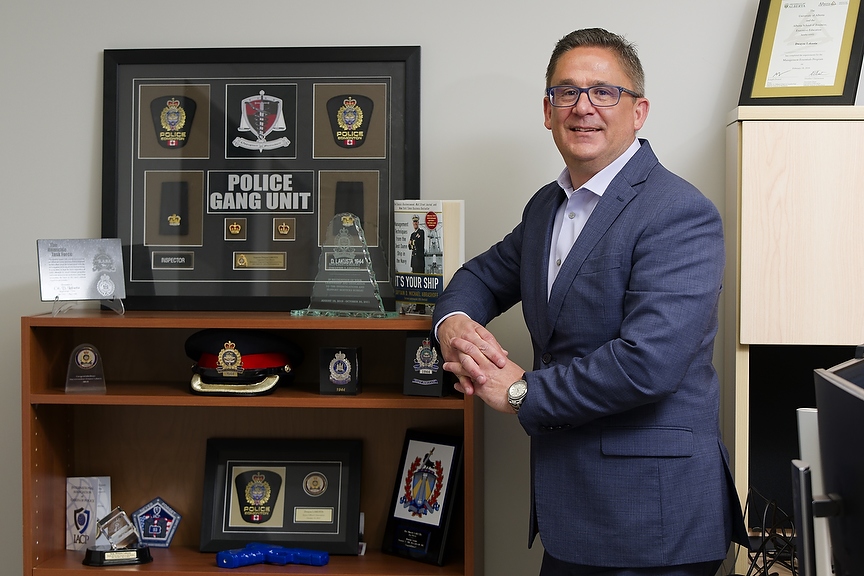
Grande Prairie Police Service (GPPS) Chief Dwayne Lakusta says the transition to becoming the police service of jurisdiction is well underway and on schedule.
Lakusta says GPPS is following the MNP report from last year that outlined a five-year plan for the transition to a municipal police service.

“We're not going to have 41 officers as indicated in the MNP report in 2024; it's just not practical because we can't de-escalate 41 officers from the RCMP,” said Lakusta.
He says this year, GPPS is more likely to deploy 24 officers.
“What I don't want to do is compromise the integrity of our operations for expediency or to line up perfectly with the MNP report.
“We're following the report, just our timelines will vary slightly, and that also is impacted by the quality of applicants that we receive.
“We're not going to compromise integrity to just hit some numbers; we want to make sure we're getting the best applicants and the best-experienced officers into the GPPS.”
He believes the service will be ready for 2027, when policing is expected to be fully transitioned to GPPS, as per the MNP report.
The police service has been busy hiring personnel to meet the goal.
Lakusta stepped into the role of police chief in late August last year; since then, he says his team has been working “quite quickly.”
“I've now developed my executive team, which includes two superintendents and the executive director of administrative operations; we've also brought in a recruiting and training team, which is comprised of a staff sergeant and constable, our public information officer is going to play a key role with marketing the new service, and it'll talk about addressing those concerns or any questions from the community,” said the chief of police.
This month, the GPPS launched job ads to attract experienced police officers who will be the first officers to be deployed by GPPS. In the last week, it has also launched postings for its first recruit class.
According to the MNP transition report, the city would see 41 municipal officers trained and deployed this year, but Lakusta believes less than that will be deployed this year.
Departments like Mobile Outreach will be integrated into the “tiered level policing” that Lakusta and his team are developing.
When GPPS receives calls for service, it will then be able to identify the right resources to send to the call under its tiered-level policing model, he said.
“You don't always need a badge and a gun showing up at a number of calls for service; police are basically the de facto response to all 911 calls for service.
“We have to recognize that we have a lot of highly skilled people outside of policing: Mobile Outreach, Municipal Enforcement have the skills and the experience to deal with other matters, whether it's someone with complex needs or the vulnerable population.”
Lakusta says a balance between enforcement and intervention is needed.
“Incarceration shouldn't be a first option for many of the people we're dealing with; we need to set them up with the right support mechanisms, the right teams, the right resources to address the complex needs they may be suffering from.”
In the future, Lakusta says a “firm direction” will be given to Mobile Outreach and Enforcement Services to “promote a better response to community safety.”
He said that GPPS is currently reviewing Enforcement Services and Mobile Outreach and looking for possible improvements.
“That's the approach that I always take, and that's going to be my expectation moving forward is we're always looking for a better way to deliver, and that may be a response to emerging trends, the way we do business, the way we respond, it's just an ongoing assessment.”
“We're going to provide a very localized and much more responsive model to the needs of Grande Prairie,” said Lakusta.
When asked about his biggest challenges for the year ahead, creating everything from a blank slate was one of the most significant, he said.
“We're creating everything brand new, everything from badges to shoulder flashes to equipment, policies, and procedures.
“It's a daunting task, but I'm very happy with the team that we've created thus far and my executive team because we're moving forward and we're seeing some successes.
“That's what comes with building a brand new police service.”
Town & Country News also spoke with Chief Lakusta about training and recruitment of GPPS officers and we will bring you that article next week.